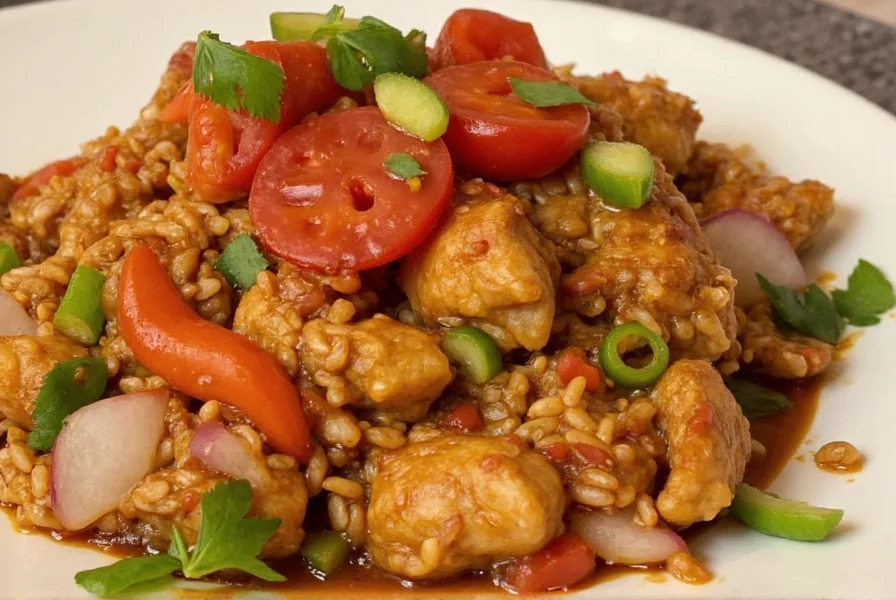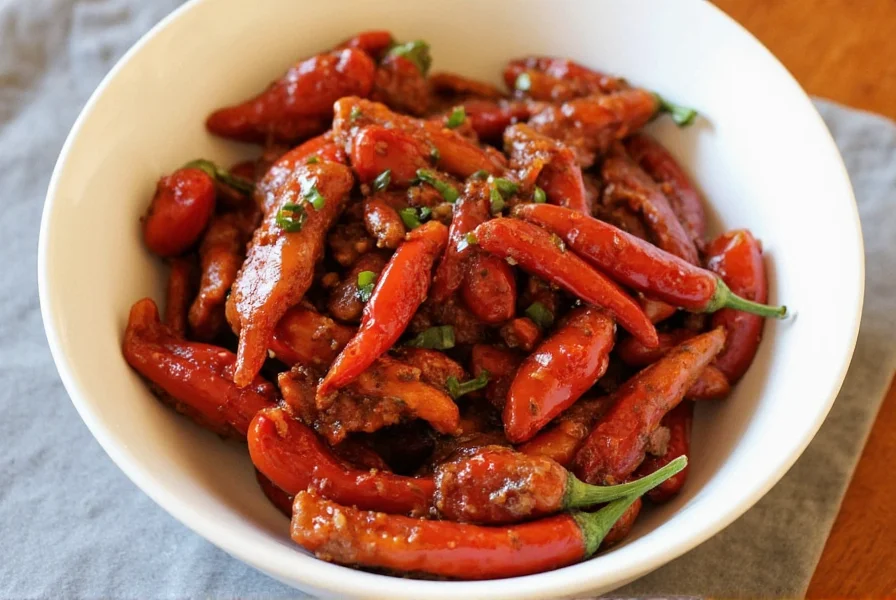Tinga Tinga Tango: A Spicy Chicken Recipe That'll Make Your Taste Buds Dance!
If you're a spice enthusiast or just someone who enjoys rich, layered flavors in their meals, you've probably heard of recipe chicken tinga. This smoky, slightly spicy Mexican dish hails from Puebla and has taken the world by storm—especially among foodies craving comfort with a kick. But how much do you really know about this iconic recipe? In this article, we’re diving deep into its origins, variations, and best practices to make your own batch at home. Plus, we’ve got a few pro tips to ensure your chicken tinga sings with flavor.
Table of Contents
- Origins of Chicken Tinga
- Essential Ingredients for Authentic Chicken Tinga
- How to Make Chicken Tinga: Step-by-Step Guide
- Creative Ways to Serve Chicken Tinga
- Buying Guide: Choosing the Best Ingredients
- Common Mistakes to Avoid When Making Tinga
- Spice It Up: Regional Variations & Flavor Twists
- Conclusion

Origins of Chicken Tinga
Chicken tinga, or tinga de pollo, originated in the central region of Mexico, particularly in the state of Puebla. The word "tinga" is believed to have come from the French word "étouffée", which means to smother or suffocate—a nod to the way the shredded chicken is cooked slowly in a rich, spiced sauce until it's infused with flavor.
Traditionally served on small corn tortillas as tacos, tinga was a humble dish that used simple ingredients like shredded chicken, tomato, onion, garlic, and chipotle peppers. Over time, it evolved into a beloved street food staple and a household favorite across Latin America and beyond.
Essential Ingredients for Authentic Chicken Tinga
To achieve the signature smoky heat and rich texture of chicken tinga, you need a handful of core ingredients:
- Shredded Chicken: Boneless, skinless chicken thighs or breasts work best.
- Tomato Sauce or Crushed Tomatoes: Provides the base for the sauce.
- Chipotle Peppers in Adobo: Adds depth and smoky heat.
- Onion & Garlic: For aromatic complexity.
- Olive Oil or Vegetable Oil: To sauté the aromatics.
- Salt & Pepper: For seasoning.
Optional Add-Ons
While these are not traditional, many cooks add:
- Balsamic vinegar
- Dark beer (like Negra Modelo)
- Cumin or smoked paprika

How to Make Chicken Tinga: Step-by-Step Guide
- Cook the aromatics: Sauté chopped onion and minced garlic in oil until fragrant.
- Add tomatoes: Stir in crushed tomatoes or tomato sauce and let simmer for 5–10 minutes.
- Incorporate chipotle: Add a couple of chipotle peppers (with some adobo sauce) for that signature smoky heat.
- Simmer with chicken: Add shredded or diced cooked chicken and stir well to coat.
- Season and simmer: Season with salt, pepper, and optional spices. Let everything simmer together for 10–15 minutes to meld the flavors.
| Step | Description |
|---|---|
| 1 | Sauté onions & garlic |
| 2 | Add crushed tomatoes |
| 3 | Mix in chipotle in adobo |
| 4 | Add cooked chicken |
| 5 | Simmer and season |
Creative Ways to Serve Chicken Tinga
While tacos are the classic go-to, don’t limit yourself! Here are five exciting ways to serve chicken tinga:
- Tacos: Warm corn tortillas topped with tinga, cilantro, onion, and lime.
- Salads: Spoon over mixed greens for a protein-packed meal.
- Quesadillas: Fill with tinga, cheese, and avocado slices.
- Pizza: Use tinga as a bold topping with mozzarella and cotija cheese.
- Pasta: Mix into creamy pasta for an unexpected fusion twist.

Buying Guide: Choosing the Best Ingredients
The magic of chicken tinga lies in the quality of your ingredients. Here’s a quick guide to help you pick the best ones:
Tomato Products
| Product | Features | Best For |
|---|---|---|
| Crushed Tomatoes | Thicker texture, less watery | Traditional tinga with chunky texture |
| Tomato Sauce | Smooth, easy to blend | Richer, more uniform sauce |
Chipotle Peppers in Adobo
- La Costeña: Widely available, balanced heat level
- El Yaque: Smokier and hotter option
- Organic Brands: Ideal for health-conscious cooks
Chicken Cuts
- Thighs: Juicier, more flavorful
- Chicken Breasts: Leaner but require careful cooking
Kitchen Tools You’ll Love
- Cast Iron Skillet: Excellent heat retention for simmering sauces
- Immersion Blender: Perfect for blending the sauce directly in the pan
- Meat Shredder Claws: Makes shredding chicken a breeze

Common Mistakes to Avoid When Making Tinga
Even seasoned cooks can slip up when making tinga. Here are common blunders and how to dodge them:
- Overcooked Chicken: Cook until tender, then remove early to avoid dryness.
- Too Much Liquid: Simmer long enough to reduce and thicken the sauce.
- Ignoring Salt Balance: Chipotle adds salt, so taste before adding extra.
- No Layered Flavor: Don’t skip toasting spices or deglazing with a splash of vinegar or beer.
Spice It Up: Regional Variations & Flavor Twists
While traditional chicken tinga comes from Puebla, different regions and chefs have added their own spin. Here are a few variations you might want to try:
- Veracruz Tinga: Includes olives and capers for briny brightness.
- Oaxaca Tinga: Features Oaxacan cheese and black beans for creaminess.
- Tex-Mex Tinga: Topped with cheddar cheese, sour cream, and jalapeños.
- Vegan Tinga: Substitute jackfruit or mushrooms for chicken.
Conclusion
Whether you're new to global spice traditions or a longtime lover of Mexican cuisine, mastering a solid recipe chicken tinga opens the door to endless culinary creativity. Its balance of smoky, spicy, and savory notes makes it a versatile dish that fits right into casual weeknight dinners or festive gatherings. With the right ingredients and a bit of technique, you can whip up a tinga that rivals any taqueria’s version—and maybe even better!
So next time you're craving something warm, comforting, and full of soul, give chicken tinga a shot. Your kitchen—and your taste buds—will thank you.










 浙公网安备
33010002000092号
浙公网安备
33010002000092号 浙B2-20120091-4
浙B2-20120091-4